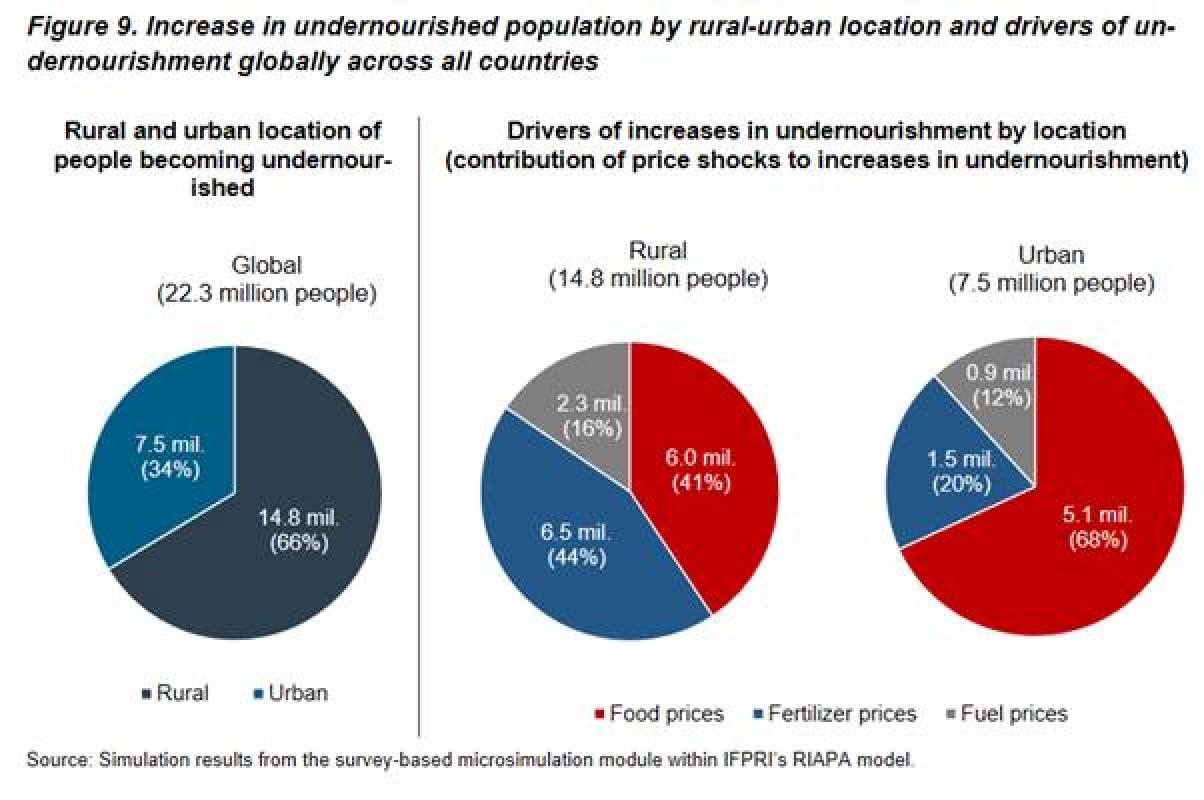Global food, fuel, and fertilizer prices have risen rapidly in recent months, raising concerns about how this will affect economic stability, food security, and poverty in developing countries. This study used IFPRI’s economywide model – known as RIAPA – to simulate the impacts of the global crises on individual countries’ economies and populations. Results from 19 country studies, each published as an individual country brief, were synthesized in this brief. The populations of these countries make up about 45 percent of the global population in low-income and lower-middle-income countries (excluding India).
Impacts on Economies and Agrifood Systems
The impact of the world price shocks on GDP varies across countries but is generally modest. Rising food prices only have a minimal impact on GDP. Global price shocks have a larger impact on agrifood system GDP than on total GDP.
Different impact channels affect different parts of the agrifood system. On average, the fertilizer shock is the most important driver of agrifood system GDP losses, mainly because this impact channel entails direct shocks to agricultural costs of production and productivity.
Impacts on Household Consumption
Household consumption falls by more than GDP
Impacts on Poverty
Falling household consumption contributes to a rise in poverty in all countries.
Impacts on Food Security and Diets
Hunger becomes more pervasive. A person is deemed undernourished when he or she consumes fewer calories than what is required for a healthy life. With falling household consumption and rising poverty, the prevalence of undernourishment rises in all 19 countries, with increases in the range of 0.3 to 4.4 percentage points.
Diet quality deteriorates for many households. The expectation is that the combined effect of declining disposable incomes and increases in diet costs (in most countries) will cause diet quality to deteriorate.

| Year of publication | |
| Authors | |
| DOI | https://doi.org/10.2499/p15738coll2.136382 |
| Geographic coverage | RwandaMyanmarNigeriaNepalCambodiaBangladeshEgyptMalawiKenyaEthiopiaGhanaGlobal |
| Originally published | 28 Sep 2022 |
| Related organisation(s) | IFPRI - International Food Policy Research Institute |
| Knowledge service | Metadata | Global Food and Nutrition Security | Food security and food crises | Cost of the dietFood price crisis |
| Digital Europa Thesaurus (DET) | Impact AssessmentModellingwar in UkrainefertiliserEnergydeveloping countriesinflationpovertyconsumption |
